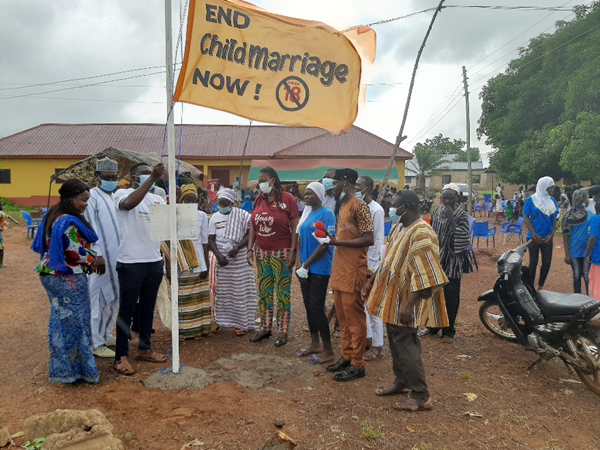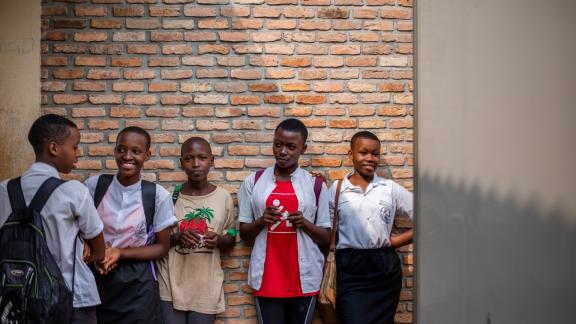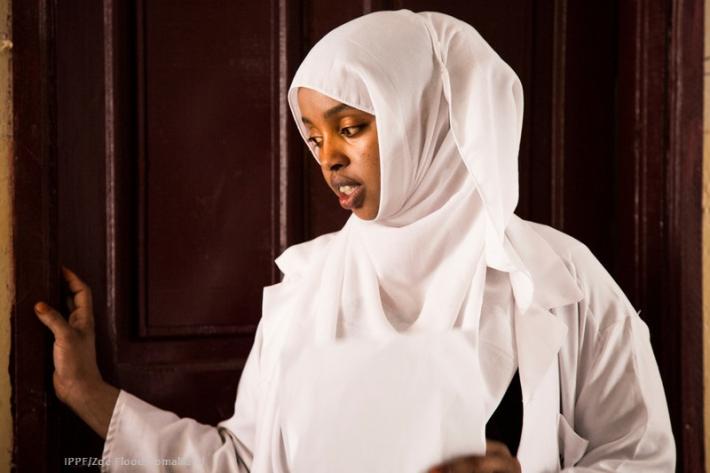By Anita Nyanjong
16 June 2022. IPPF Africa Region joins the rest of the world in marking the International Day of the African Child. The day of the African Child was birthed in commemoration of the 1976 uprising by black African students in Soweto, protesting their marginalization in the apartheid Education System in South Africa. The resulting response from the apartheid regime left scores of young students dead. To this day, South Africa commemorates 16 June as a National Youth Day in remembrance of the young people who challenged the apartheid regime and its system of segregation and discrimination against the non-white majority in the Republic of South Africa.
Whilst the progressive actions of the young people in apartheid South Africa laid a foundation for the celebration of the African Child, the realities of children in Africa today still far remain from the aspirations envisioned in The African Charter on the Rights and Welfare of Children. The African child is suffering from harmful traditional practices, a collective term for abuse seen as acceptable norms within African communities. Today, these practices, occurring in different contexts in Africa, include; breast ironing, virginity testing, child early and forced marriage, female genital mutilation/cutting (FGM/C) and other practices grounded on discrimination of children either due to their sex or gender or other intersecting forms of discrimination.
This year, the day of the African child is commemorated under the theme Eliminating Harmful Practices Affecting Children: Progress on Policy and Practice 2013. One of these practices, child early and forced marriages, which is a human rights violation, remains prevalent in certain areas in the African region. UNICEF estimates that approximately 650 million girls and women alive today were married early. Sub-Saharan Africa accounts for one of the world’s highest rates of child early and forced marriages rates, where 37 per cent of young women married before age 18.. The rate of early child and forced marriages varies across different countries in Africa, with Niger being one of the countries with the highest rates in Africa and the world. UNICEF estimates it will take approximately 100 years to eradicate this practice, particularly in West and Central Africa.
Despite significant progress in legal and policy frameworks at the African Regional level over the last decade in ending early child and forced marriages, these measures have not translated into practical and meaningful progress. Concerted efforts towards doing so have been adversely affected over the last two years by COVID-19 lockdowns and confinement measures, leading to less support available to child survivors of this harmful practice. COVID-19 lockdowns further affected ongoing programming towards eliminating early child and forced marriages.
Furthermore, early child and forced marriages violate girls' sexual and reproductive health rights and, on most occasions, lead to poor physical and mental health outcomes. Denying girls the ability to make critical choices about their futures. Married adolescents face higher risks of death resulting from complications arising from pregnancy. Younger adolescents also face challenges accessing sexual and reproductive health services due to the stigma associated with providing contraception, abortion and HIV prevention and testing services. Married adolescents and young women are also deprived of their sexual reproductive health rights when they cannot choose the appropriate contraception due to the perception that some contraception is only suitable for younger women.
The resulting socio-economic impact of child marriage is often catastrophic. Girls who are married early often drop out of school and assume domestic responsibilities. This limits their access to valuable information and education on their sexual and reproductive health and rights. Girls who do not have access to appropriate education and knowledge are less likely to challenge harmful gender norms and are often susceptible to emotional, sexual and physical violence in their homes and communities.
Although most countries in Africa have ratified and domesticated the Convention on the Rights of the Child as well as the African Charter on the Rights and Welfare of the Child , there are yet proactive steps to meaningful engagement to fully eradicate early forced and child marriages. Indeed, a comprehensive multisectoral approach, combined with community engagement, is needed to address this scourge.
There is progress in many African countries where multisectoral partnerships and approaches have significantly reduced the number of girls married early. For example, IPPF's partner organization, the Planned Parenthood Association of Ghana ( PPAG), is working in Tamale, Ghana, with multisectoral partners, including the community traditional leaders, the Youth Action Movement (YAM), the local Government and health clinics towards eradicating this scourge. PPAG interventions involve capacity building for community leaders and service providers on gendered-based violence, the rights of married and unmarried adolescents, and ensuring that girls know about their sexual and reproductive health. As a result of this joint intervention, there have not been any cases of early and forced child marriages in Tamale over the past year.
In conclusion, the responsibility of entirely ending this harmful practice rests with the African States. To fully eradicate this practice, African states must adopt comprehensive and multisectoral approaches to ending early forced and child marriages. Girls must be allowed to enjoy their youth and contribute to the aspirations of Africa that we want.
The picture below shows a flag hoisted at the traditional chief's office in Tamale, Ghana, being lowered at half-mast, representing a suspected case of child marriage in the community. Courtesy of Planned Parenthood Association of Ghana.

Read this article in French here.
Anita Nyanjong is the IPPF Global Lead (Youth).
For more updates on our work, follow IPPF Africa Region on Facebook, Twitter, Instagram and You Tube.
when










